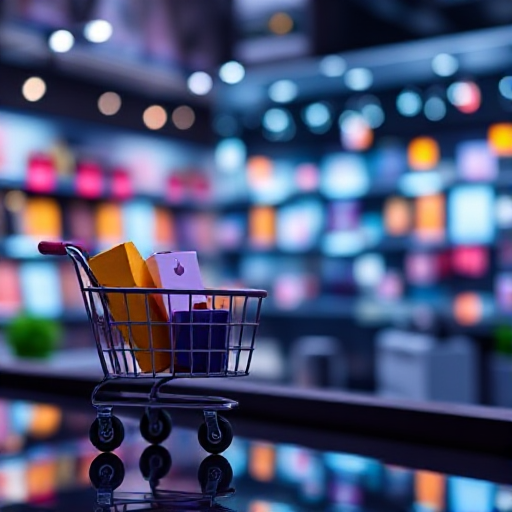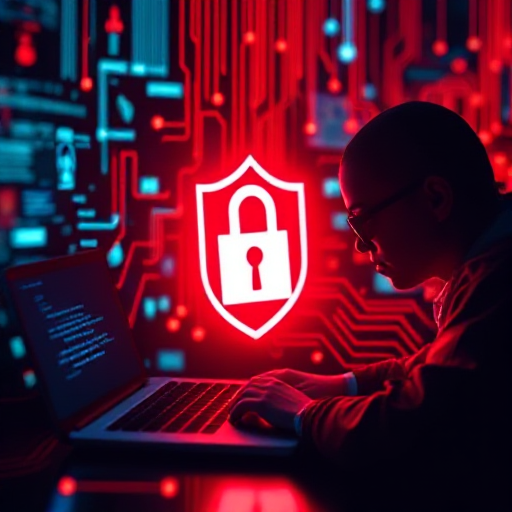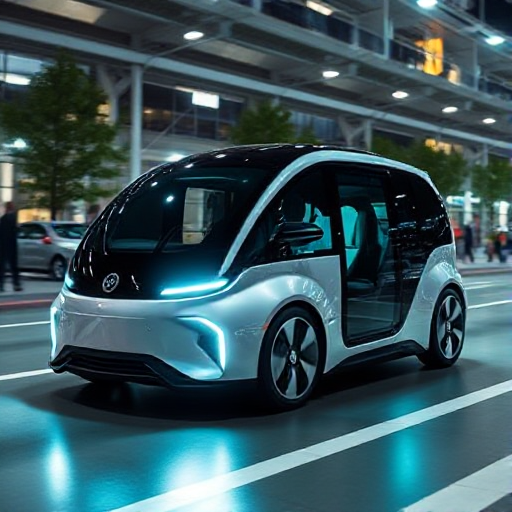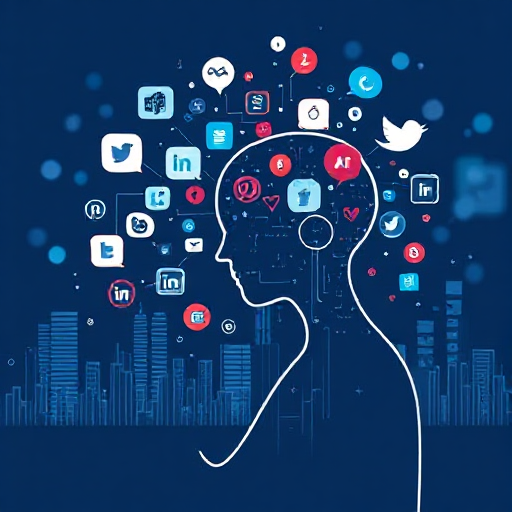E-commerce continues to evolve rapidly, driven by technological advancements, shifting consumer behaviors, and emerging trends. As we move into 2025, several key trends are shaping the online shopping landscape. Here’s a look at what’s likely to dominate the e-commerce world this year: 1. Artificial Intelligence (AI) and Personalization 2. Augmented Reality (AR) Shopping 3. Voice Commerce 4. Social Commerce 5. Sustainable and Ethical Shopping 6. Subscription-Based Models 7. Mobile Commerce (M-Commerce) 8. Same-Day and Fast Delivery 9. Cryptocurrencies and Blockchain Technology 10. Artificial Intelligence-Powered Customer Service
The Benefits Of Yoga Enhancing Physical And Mental Well-Being
Yoga is an ancient practice that integrates physical movement, breath control, and meditation to enhance both physical and mental well-being. It’s not just about physical flexibility and strength but also about achieving mental clarity, emotional balance, and a deep connection between the mind and body. Here are some key benefits of practicing yoga: 1. Improves Physical Flexibility 2. Builds Strength and Endurance 3. Enhances Posture 4. Boosts Mental Clarity and Focus 5. Reduces Stress and Anxiety 6. Improves Breathing and Respiratory Health 7. Enhances Emotional Balance 8. Supports Better Sleep 9. Promotes Better Heart Health 10. Fosters a Sense of Community 11. Supports Healthy Weight Management
Cybersecurity Basics Protecting Your Personal Information Online
Cybersecurity is a crucial aspect of protecting your personal information online, especially as the digital world continues to evolve. From online shopping and banking to social media and email, we are constantly sharing personal data online, making it a prime target for cybercriminals. Here are some basic steps you can take to protect your personal information and enhance your online security: 1. Use Strong, Unique Passwords 2. Enable Two-Factor Authentication (2FA) 3. Be Cautious of Phishing Scams 4. Use Secure Websites (HTTPS) 5. Keep Software and Devices Updated 6. Use Antivirus and Anti-Malware Software 7. Protect Your Wi-Fi Network 8. Be Careful with Public Wi-Fi 9. Be Mindful of What You Share on Social Media 10. Backup Your Data Regularly 11. Stay Vigilant for Identity Theft
Financial Planning For Millennials Tips To Secure Your Future
Financial planning is essential for everyone, but it’s especially important for millennials who are starting to build their financial foundation for the future. With the unique financial challenges faced by this generation—student loan debt, rising housing costs, job market volatility, and an unpredictable economy—it’s crucial to develop good habits early to ensure long-term financial security. Here are some tips for millennials to secure their financial future: 1. Start Saving Early and Consistently 2. Build an Emergency Fund 3. Pay Off Debt Strategically 4. Create a Budget and Track Your Spending 5. Invest Early for Retirement 6. Focus on Building Good Credit 7. Protect Yourself with Insurance 8. Diversify Your Investments 9. Plan for Major Life Events 10. Keep Learning and Stay Informed
Virtual Reality In Education How VR Is Changing Learning Experiences
Virtual Reality (VR) is transforming the way we approach education, offering immersive, engaging, and interactive learning experiences that go far beyond traditional classroom settings. With the ability to simulate real-world environments or create entirely new worlds, VR allows students to experience learning in ways that were previously unimaginable. Here’s a look at how VR is changing learning experiences: 1. Immersive Learning Environments 2. Personalized Learning 3. Engagement and Motivation 4. Collaboration and Social Learning 5. Accessibility and Inclusion 6. Virtual Field Trips 7. Language Learning 8. Teacher Training and Professional Development 9. Addressing Different Learning Styles 10. Data-Driven Insights for Educators Challenges and Considerations While the potential of VR in education is vast, there are some challenges to consider:
The Gig Economy Pros And Cons Of Freelancing In Today’s Market
The gig economy, characterized by short-term, flexible jobs and freelancing opportunities, has been rapidly growing in recent years. With the rise of digital platforms, many individuals are opting for freelancing over traditional 9-to-5 employment. While freelancing offers numerous advantages, it also comes with certain challenges. Here’s a breakdown of the pros and cons of freelancing in today’s market: Pros of Freelancing in the Gig Economy 1. Flexibility and Autonomy 2. Potential for Higher Earnings 3. Skill Development and Career Growth 4. Work-Life Balance Cons of Freelancing in the Gig Economy 1. Income Insecurity 2. Lack of Job Security 3. Administrative Responsibilities 4. Isolation and Loneliness 5. Work-Life Boundaries
Mindfulness Practices Techniques To Enhance Your Daily Life
Mindfulness practices are powerful tools that can help enhance your daily life by promoting awareness, reducing stress, and improving overall well-being. By incorporating mindfulness into everyday activities, you can cultivate a greater sense of presence, reduce anxiety, and foster emotional balance. Here are some effective mindfulness techniques and practices that you can easily integrate into your routine: 1. Mindful Breathing Mindful breathing is one of the simplest and most effective mindfulness techniques. It involves paying attention to your breath as it enters and leaves your body. 2. Body Scan Meditation The body scan is a mindfulness practice that involves focusing your attention on different parts of your body, noticing any sensations, and relaxing the muscles as you go. 3. Mindful Eating Mindful eating involves paying full attention to the experience of eating. It helps you become more aware of the taste, texture, and sensations associated with food, as well as your hunger and fullness cues. 4. Mindful Walking Mindful walking is a form of walking meditation where you bring your awareness to the sensations of movement, your surroundings, and your breath as you walk. 5. Loving-Kindness Meditation (Metta) Loving-kindness meditation is a practice that involves cultivating feelings of compassion and goodwill toward yourself and others. 6. Mindfulness in Daily Activities You can incorporate mindfulness into everyday tasks, such as washing dishes, brushing your teeth, or taking a shower. The key is to fully engage with the activity and be present in the moment. 7. Journaling for Mindfulness Writing in a journal can help you process your thoughts and emotions, cultivate self-awareness, and reflect on your day with mindfulness. 8. Mindful Listening Mindful listening is the practice of giving your full attention to the person speaking, without judgment or distraction. This practice can improve communication and strengthen relationships. 9. Gratitude Practice Practicing gratitude can shift your focus from what’s missing to what’s abundant in your life. It helps you cultivate a positive mindset and increase your overall well-being. 10. Mindfulness of Thoughts Mindfulness of thoughts involves observing your thoughts as they arise, without getting caught up in them or identifying with them.
The Future Of Transportation And What To Expect
The future of transportation is poised to be shaped by a combination of emerging technologies, environmental concerns, and the need for greater efficiency and convenience. While some developments are already underway, others are still in the conceptual or early implementation stages. Here’s a look at some of the most exciting advancements in transportation and what we can expect in the near and distant future: 1. Electric Vehicles (EVs) and Charging Infrastructure 2. Autonomous Vehicles 3. Hyperloop and High-Speed Rail 4. Urban Air Mobility (UAM) and Flying Cars 5. Sustainable Transportation and Green Technologies 6. Smart Infrastructure and Traffic Management 7. Mobility as a Service (MaaS)
The Impact Of Social Media On Mental Health Navigating The Digital Landscape
The impact of social media on mental health is a complex and multifaceted issue. On one hand, social media has revolutionized the way we connect, share, and engage with the world. On the other hand, its use can have profound effects on our emotional well-being, both positive and negative. Here’s a closer look at how social media can affect mental health and ways to navigate the digital landscape mindfully: 1. The Positive Impacts of Social Media on Mental Health 2. The Negative Impacts of Social Media on Mental Health 3. Navigating the Digital Landscape Mindfully Given the mixed effects of social media on mental health, it’s essential to navigate these platforms with intentionality. Here are some strategies for managing social media use in a healthy way: Set Boundaries and Limit Usage Practice Mindful Consumption Combat Cyberbullying and Online Harm Seek Professional Help When Needed Promote Digital Literacy and Awareness 4. The Role of Social Media Companies While individuals and communities play a key role in promoting mental health online, social media companies themselves must take responsibility for the impact their platforms have on users’ well-being. Companies can:
Climate Change Mitigation Effective Strategies For Individuals And Communities
Climate change is one of the most pressing challenges of our time, and while governments and corporations play a significant role in addressing it, individuals and communities can also take meaningful action. Here are some effective strategies for mitigating climate change at both personal and community levels: 1. Reduce Energy Consumption 2. Adopt Renewable Energy 3. Change Transportation Habits 4. Reduce, Reuse, and Recycle 5. Eat a More Sustainable Diet 6. Support and Advocate for Climate Policies 7. Conserve Water 8. Promote Urban Green Spaces 9. Engage in Education and Awareness 10. Support Sustainable Businesses











